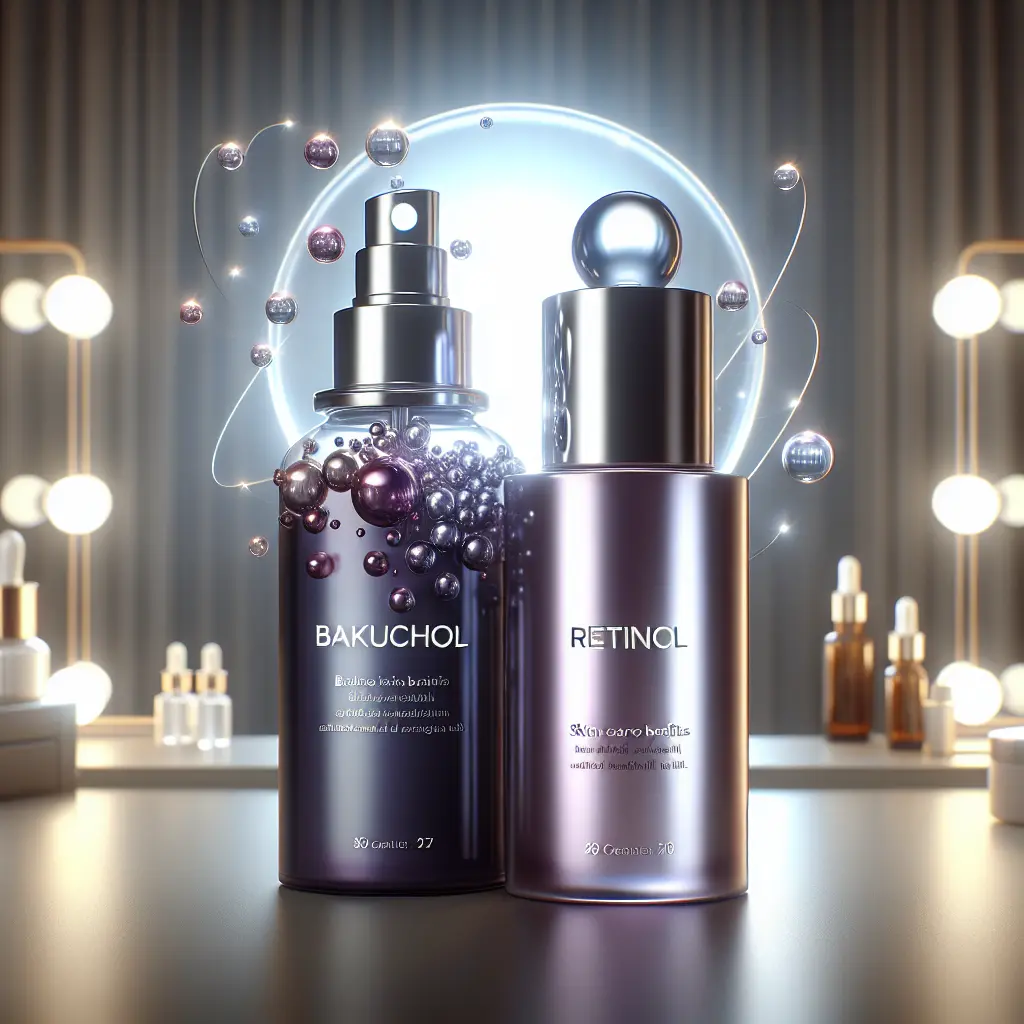
In the evolving world of skincare, the quest for the perfect ingredient that can combat aging, manage acne, and ensure a glowing complexion is unending. Two contenders stand out in this arena: traditional retinol and the newer, buzzworthy bakuchiol. Both promise significant anti-aging benefits and have created a stir in dermatology circles, but how do they really compare? Let’s dive into the world of Bakuchiol vs Retinol.
Understanding Retinol and Its Popularity
Retinol, a derivative of Vitamin A, has long been heralded as the gold standard in anti-aging skincare. It’s well-known for reducing wrinkles, enhancing skin texture, and fighting acne. However, despite its benefits, retinol often comes with a caveat—side effects. These can include dryness, redness, and irritation, particularly for those with sensitive skin. As noted in "The Best Retinol for Every Skin Concern—According to the Pros," professionals often recommend starting with lower concentrations to mitigate these issues (source).
Bakuchiol: The Natural Retinol Alternative
Enter Bakuchiol, a plant-derived compound that has been gaining popularity as a gentler alternative to retinol. Extracted from the leaves and seeds of the Psoralea corylifolia plant, bakuchiol offers many of the same rejuvenating effects as retinol without the harsh side effects. This makes it an attractive option for those pursuing natural skincare ingredients or have sensitive skin.
Recent discussions around bakuchiol’s efficacy highlight its antioxidant properties and its ability to function as an anti-inflammatory and antibacterial agent, which is particularly beneficial for acne treatment. A study published in the British Journal of Dermatology found that bakuchiol is comparable to retinol in its ability to reduce signs of aging but with fewer side effects (British Journal of Dermatology).
Bakuchiol vs Retinol: Performance in Skincare
When comparing bakuchiol vs retinol directly, several factors come into play. For anti-aging benefits, both ingredients promote collagen production and cellular turnover. However, bakuchiol has a distinct advantage due to its gentler nature and lower likelihood of causing irritation. This aspect of bakuchiol benefits makes it a preferred choice in gentle skincare formulations.
Moreover, for those embracing vegan skincare, bakuchiol checks all the boxes as it is entirely plant-based. This aligns well with the growing demand for cruelty-free and vegan skincare products.
Addressing Common Skin Concerns
Both ingredients address common skin concerns beyond just aging. For instance, their role in acne treatment is noteworthy. Retinol helps by unclogging pores and reducing breakouts, whereas bakuchiol’s anti-inflammatory properties help soothe the skin and reduce acne-related inflammation.
However, retinol's side effects can sometimes exacerbate sensitive skin conditions, leading users to seek retinol alternatives like bakuchiol. An anecdote shared in recent news highlights this shift; a pharmacist recommended bakuchiol to a customer seeking an alternative to retinol for managing under-eye circles, with promising results (source).
Incorporating into a Skincare Routine
Incorporating either bakuchiol or retinol into your skincare routine requires some consideration. For retinol, dermatologists often recommend gradual introduction into your regimen to allow your skin to adapt. Starting with applications a few times a week can mitigate potential irritation (Dermatology News).
Bakuchiol, on the other hand, can generally be used more freely due to its gentler nature. It can be found in various forms from serums to creams and is suitable for use twice daily, fitting seamlessly into both morning and night skincare routines.
Recent Trends and Consumer Preferences
The trends in consumer preferences also reflect a growing inclination towards ingredients like bakuchiol. With an increasing number of individuals experiencing sensitive skin or looking for vegan and cruelty-free options, bakuchiol is becoming a go-to component. This shift is evident from giveaways and promotions focusing on gentler, more natural products, such as the recent Nivea campaign from Pedestrian TV offering products that cater to these needs (Pedestrian TV).
Conclusion
The debate between Bakuchiol vs Retinol ultimately boils down to personal preference and skin type. Retinol may offer more potent results for some but at the risk of higher irritation. Bakuchiol presents a compelling natural alternative with comparable results and fewer side effects, making it ideal for those with sensitive skin or prefer natural skincare ingredients.
As we continue to see advancements in dermatology and skincare formulations, the choice between these two powerhouse ingredients will likely become easier, with more tailored solutions available to meet individual skincare needs.
Thank you for joining me on this exploration of Bakuchiol and Retinol. Whether you’re just starting your journey into skincare or looking to tweak your routine, I hope this comparison helps you make informed decisions that keep your skin healthy and radiant.
Warm regards,
Emily Smith